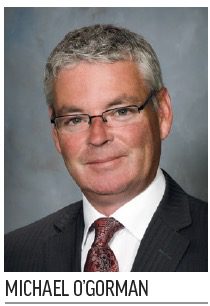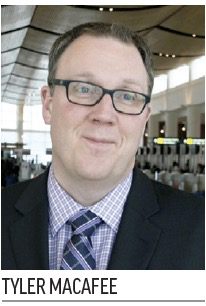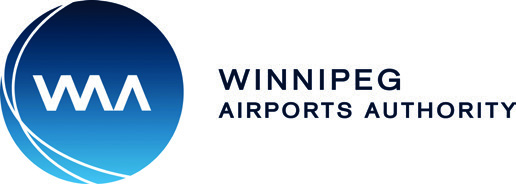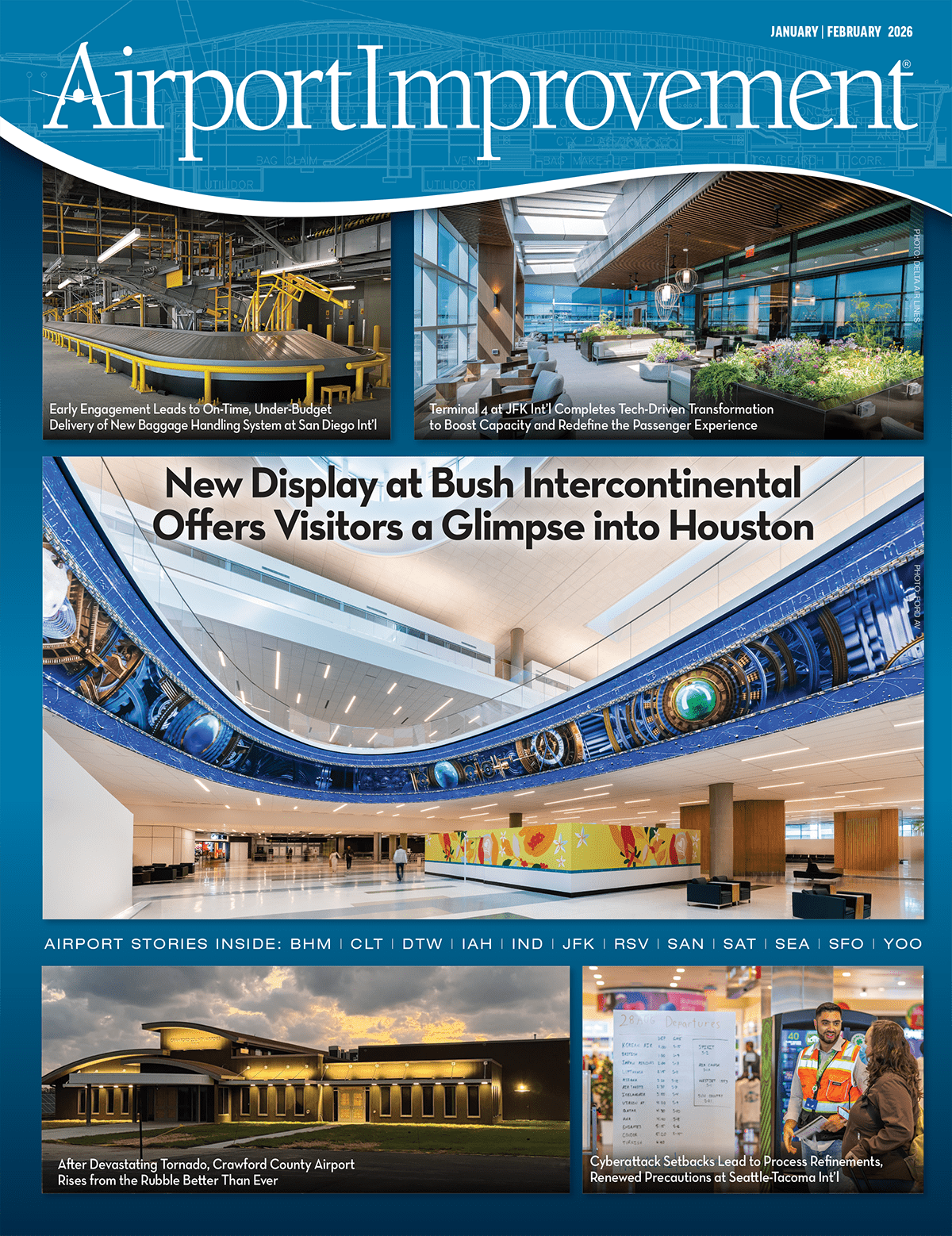Leadership decided to parlay the organization’s experience operating and managing Winnipeg James Armstrong Richardson International Airport (YWG), Canada’s seventh busiest airport for passenger traffic and the busiest for air cargo, into a consulting firm for other Canadian airports. Executives felt that the strategy would not only support WAA’s financial well-being, but also allow the organization to “give back” to the airport community.
When Winnipeg Airports Authority (WAA) went searching for ways to diversify and increase its revenue sources, it didn’t have to look far.
 Leadership decided to parlay the organization’s experience operating and managing Winnipeg James Armstrong Richardson International Airport (YWG), Canada’s seventh busiest airport for passenger traffic and the busiest for air cargo, into a consulting firm for other Canadian airports. Executives felt that the strategy would not only support WAA’s financial well-being, but also allow the organization to “give back” to the airport community.
Leadership decided to parlay the organization’s experience operating and managing Winnipeg James Armstrong Richardson International Airport (YWG), Canada’s seventh busiest airport for passenger traffic and the busiest for air cargo, into a consulting firm for other Canadian airports. Executives felt that the strategy would not only support WAA’s financial well-being, but also allow the organization to “give back” to the airport community.
In 2014, WAA launched Winnipeg Airport Services Corp. (WASCO) as a wholly owned subsidiary. “We found that we had the talent in our team to manage operations and safety for other airports,” explains Michael O’Gorman, managing director of WASCO.
|
Project: Airport Consulting Service Provider: Winnipeg Airport Services Corp. Subsidiary of: Winnipeg Airports Authority Staff: 50 Focus Areas: Operations; safety Core Services: Airport operations; airport management; facility maintenance; technical solutions Pricing: Varies with service & location 2019 Revenue: More than $12 million Bellwether Client: Iqaluit Int’l Airport (NU) Total Clients: 37 throughout Canada Key Benefits: Winnipeg Airports Authority augments & diversifies its revenue stream; client airports gain experienced operational support without the added cost of on-site employees |
The organization’s mission is to provide innovative and cost-conscious options to airports. O’Gorman notes that the airports WASCO counsels often grapple with many of the same challenges that YWG has tackled, but do so with fewer resources at their disposal.
“It can be frustrating for a town council to not know all the rules associated with running an airport,” explains Tyler MacAfee, vice president of Communications and Government Relations for WAA. “We find that municipal governments that also operate airports immediately see the value in WASCO.
Developing comprehensive safety management programs and establishing plans for various aspects of operations and security processes can be daunting for smaller airports, he adds.
“The key for WASCO is that we’re already in the business of operating airports,” says O’Gorman. “We have seen before the challenges that these airports face, and that is what has been integral to our success.”
Consultancy Launched
WASCO’s first foray into consulting was a public private partnership formed in 2014 with the Nunavut government regarding Iqaluit International Airport (YFB), a remote facility on Baffin Island northeast of Hudson Bay. The original 30-year agreement encompassed the design, construction, finance, maintenance and operation of YFB, and was the first of its kind in Canada. Construction of a new terminal that opened in August 2017 was a pivotal component. Ultimately, WASCO’s work at YFB bloomed into an agreement for it to provide safety management systems and quality assurance programs to 24 airports in Nunavut.
To date, WASCO has provided consulting services to 37 airports throughout four provinces and one territory in Canada. Many are located in northern and remote communities, where airports are crucial links for everyday supplies and medical support.
MacAfee explains that WASCO taps into its deep well of in-house resources for each airport client. Depending on the contract, its management team can assist with overseeing day-to-day operations, the commercial team can provide support and long-term strategic planning for concessions, and members of the facility maintenance group can offer advice about airport upkeep and implementing new technology. While pricing varies according to airport location and the support required, WASCO characterizes its rates as competitive. Personnel note that their consulting services can save communities 50% compared to the cost of adding on-site employees. In exchange for handing over the proverbial keys to its airport, a community can gain a diverse and experienced team of aviation professionals working on its unique circumstances.
 “It is a win-win situation for all,” says MacAfee. “We help the airport by building capacity and adding new expertise, and we help the communities by hiring local and having a positive presence.”
“It is a win-win situation for all,” says MacAfee. “We help the airport by building capacity and adding new expertise, and we help the communities by hiring local and having a positive presence.”
The model WASCO developed has yielded impressive results. With nearly 50 staff members, the consulting group earned more than $12 million in 2019 and accounted for 9% of WAA’s total earnings. In 2020, with passenger traffic depressed across the globe, it was responsible for nearly 20% of the authority’s revenue, reinforcing its earlier decision to diversify into consulting.
WASCO prides itself on being different from most consulting firms. Instead of simply providing services and moving on to the next client, it strives to become part of each airport and local community, creating aviation programs specific to its needs
and goals.
Reviewing safety policies and procedures can be particularly challenging for airports without the funding for full-time on-site employees. Stephenville Airport (YJT) in Newfoundland fits squarely into that category.
“Having WASCO oversee safety and management systems at Stephenville Airport positions us for growth in our transportation sector,” says Tom Rose, the town’s mayor. YJT draws on the consultancy’s knowledge of safety standards and airport management to help navigate complexities of Canada’s air traffic standards, Rose adds.
WASCO provides YJT with a dedicated coordinator who acts as its “safety concierge”—writing documents, performing audits and reviewing pertinent regulatory requirements and manuals.
“We want to help airports to be able to focus on their operation instead of all of the paperwork that happens behind-the-scenes,” O’Gorman explains.
Pandemic Push
WASCO plans to continue serving smaller airports and communities throughout Canada and even abroad. Company leaders, in fact, feel that the global COVID-19 crisis may spur demand for the company’s services.
“As airports come out of this pandemic, they are going to look for innovative and cost-effective ways to do business,” says O’Gorman.
In the meantime, WASCO is helping WAA weather the significant disruption the entire industry is experiencing. Moving ahead, the team is hopeful that nearly 50 airports will look to WASCO for assistance navigating the challenges in the ever-changing aviation industry.


 facts&figures
facts&figures

